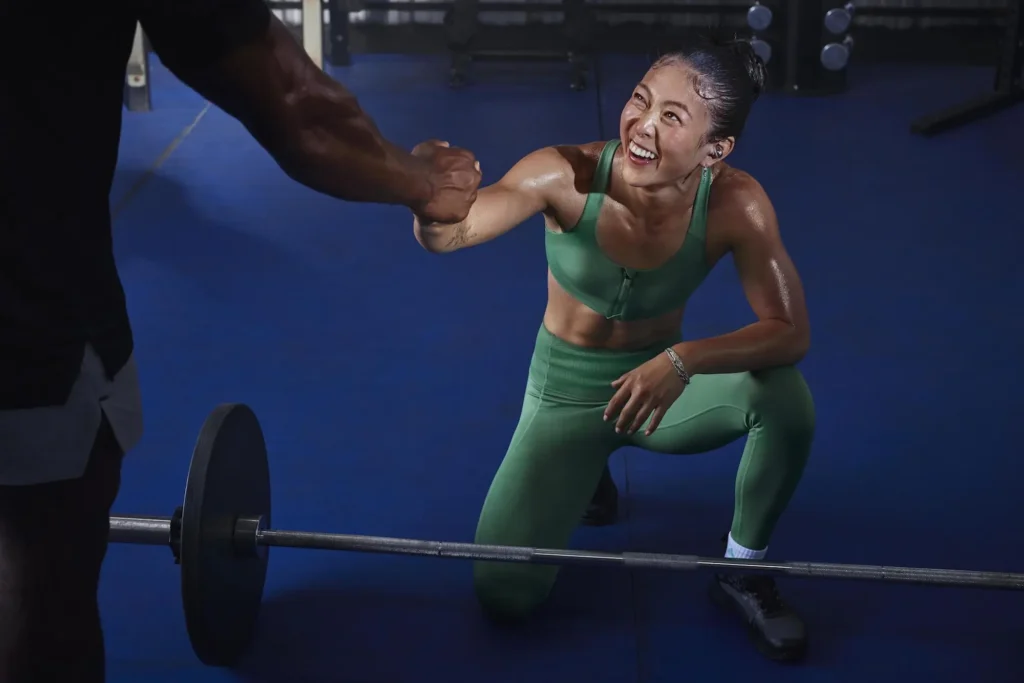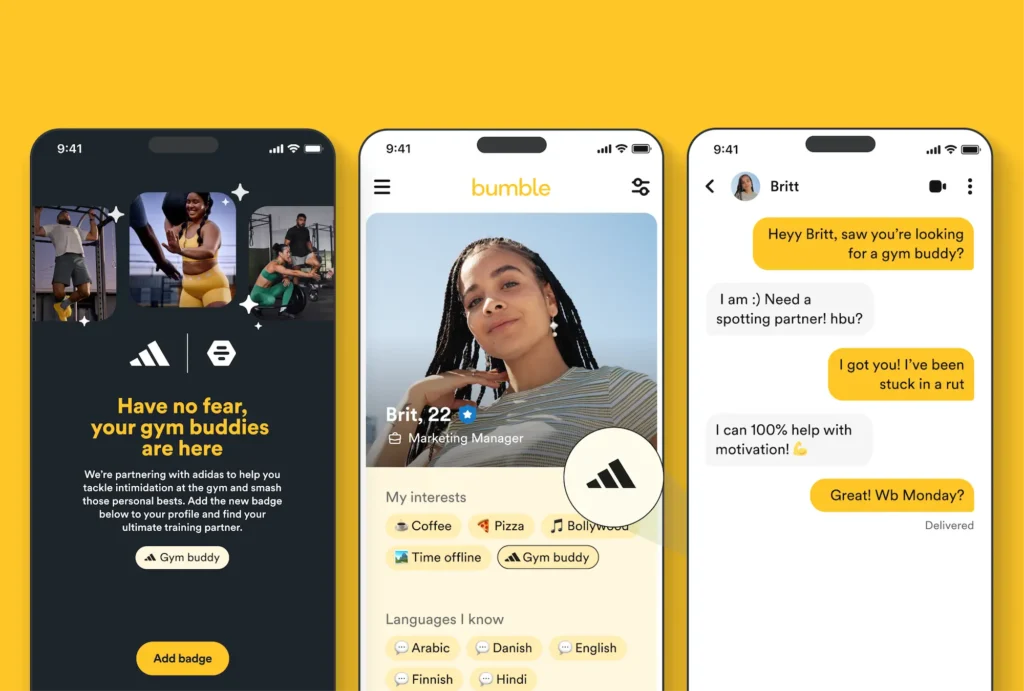Seeking a Swolemate? Adidas, Bumble Partner To Connect Gym-Goers

“Gymtimidation” is real, especially among Gen Z. But experts say having a gym buddy can boost visits and improve accountability
A new year often has consumers running to join the nearest gym, but a substantial portion of the younger population struggles with gym intimidation, with nearly one in three avoiding fitness facilities altogether. It’s a stat that Adidas Training wants to change, enlisting the help of dating and friend-seeking app Bumble to make it easier for fitness enthusiasts to find a fellow training buddy.
Bumble and Bumble for Friends users can now add a special Adidas Gym Buddy interest badge to their profiles, indicating they’re open to finding a new friend to share training tips and help them smash their fitness goals.
Before partnering with Bumble, Adidas tapped Focaldata to conduct wide-scale research, surveying nearly 5,000 18-25-year-olds interested in health and fitness across the globe.
The results were surprising, especially considering many young consumers seem to feel comfortable in front of a social media audience. However, when no longer behind the screen, Gen Z’s confidence seems to dwindle, especially in fitness settings.
Gen Z may want to work out, but Adidas found that nearly one in five confessed fears of being judged and one in three revealed they have no one to train with in real life.
However, Gen Z is aware of the ways to remedy intimidation, namely that having a gym buddy along for the ride is a game-changer. Seven in ten reported that having a gym companion helps them overcome feelings of intimidation, resulting in increased motivation and visits to the gym.
“Gymtimidation can put many people off training, and this means they miss out on all the mental and physical benefits that come with a regular exercise routine,” said Dr. Josephine Perry, a chartered sport and exercise psychologist. “A gym buddy can be a great way to overcome gymtimidation. Research tells us that this kind of social support improves our enjoyment of exercise, and when we enjoy something, we simply do more of it.”

Dr. Perry also expanded on the advantages of feeling accountable to a gym buddy, leading to working harder and training for longer.
“When you add to this the psychological safety that comes from having a shared goal and knowing that person is not just physically but also mentally on your side, your motivation gets boosted, and you can get the most out of your time in the gym,” she added.
Aimee Arana, Adidas Global general manager of sportswear and training, noted that younger athletes can be pressured by negative self-talk, leading to a barrier to fitness training.
“Disarming these self-limiting beliefs with community-first solutions is important to us,” Arana said. “Partnering with Bumble, a platform dedicated to creating empowering community connection, perfectly supports our mission in helping athletes of all levels become stronger and unlock their individual training goals.”

The Great Race for Gen Z
Like other fitness and sports leaders, such as Planet Fitness, Adidas has been studying and targeting ways to reach young fitness consumers.
Last year, the activewear giant launched a strength-focused workout in collaboration with Les Mills that speaks to Gen Z’s preference for bodyweight training and Pilates.
Peloton has also been examining the unique trends and expectations of Gen Z and Millennials and how they interact with fitness.
In a special report issued last month, the connected fitness company revealed that younger generations are more likely to face mental health challenges when it comes to engaging in fitness activities (42% Gen Z, 33% Millennials) and close to one in three feel anxious or self-conscious when engaging in or considering engaging in fitness and physical activity.
What’s more — Peloton found that younger generations are more likely to reduce their exercise frequency due to stress related to political cycles, signaling a great need for “gymtimidation” intervention, especially as America braces for another contentious presidential election.
Courtney Rehfeldt has worked in the broadcasting media industry since 2007 and has freelanced since 2012. Her work has been featured in Age of Awareness, Times Beacon Record, The New York Times, and she has an upcoming piece in Slate. She studied yoga & meditation under Beryl Bender Birch at The Hard & The Soft Yoga Institute. She enjoys hiking, being outdoors, and is an avid reader. Courtney has a BA in Media & Communications studies.



